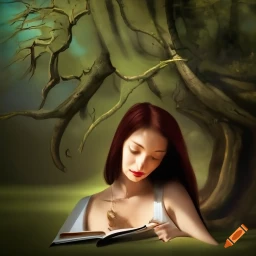As a writer and lover of words, there’s something captivating about poetry. Its beauty and significance as a literary form have endured throughout the ages, touching hearts and minds with its ability to evoke emotions and convey complex ideas. In this article, we will delve into the world of poetry, exploring various poetry techniques and providing inspiration for aspiring poets like you.
The Power of Imagery in Poetry
Imagery is the backbone of impactful poetry, allowing poets to paint vivid pictures in the minds of their readers. By incorporating sensory details and descriptive language, poets can transport us to different realms and invoke a range of emotions. When reading a well-crafted poem, we can visualize the scenes and connect with the underlying emotions. Renowned poets like Emily Dickinson, Pablo Neruda, and Sylvia Plath excel in the use of imagery, infusing their verses with powerful visuals that resonate deeply.
Playing with Sound: Rhyme, Rhythm, and Meter
Rhyme, rhythm, and meter are the musical elements that bring poetry to life. Rhyme schemes, such as the classic AABB or the more complex ABAB CDCD, add a melodic quality to poems, creating a pleasing auditory experience for the reader. Rhythm establishes the flow and pace of a poem, while meter, the pattern of stressed and unstressed syllables, contributes to its overall structure. Poems by Robert Frost, Maya Angelou, and Langston Hughes exemplify the artful use of sound techniques, captivating audiences with their lyrical compositions.
The Art of Metaphor and Symbolism
Metaphors and symbolism are the tools that poets use to convey deeper meaning and evoke emotions beyond the literal. Metaphors allow for connections and comparisons, enabling the exploration of complex ideas through vivid imagery. Symbolism, on the other hand, uses objects, characters, or settings to represent abstract concepts or emotions. Poets like William Shakespeare, T.S. Eliot, and Lang Leav skillfully employ metaphors and symbolism, infusing their verses with layers of interpretation and evocative power.
Finding Inspiration: Sources and Techniques

Inspiration can be found in the world around us and within our own experiences. Nature, with its ever-changing beauty, can serve as a wellspring of ideas. Personal experiences, whether joyful or challenging, offer a rich tapestry of emotions to draw from. Additionally, social issues and the human condition can inspire powerful poetry that reflects the world we live in. Techniques like freewriting, word association, and visual prompts can help ignite creativity and unlock hidden depths. Regular observation and journaling become allies in capturing fleeting thoughts and emotions. Overcoming writer’s block is an inevitable challenge, but finding motivation through self-reflection, reading poetry, and exploring new perspectives can reignite the creative flame.
Honing Your Craft: Tips for Aspiring Poets
To improve your poetic craft, immerse yourself in the works of various poets and explore different styles. Reading widely exposes you to diverse voices, expanding your understanding of the possibilities within the realm of poetry. Experimentation with poetic form, structure, and language allows you to find your unique voice and style. Remember, seeking feedback from peers and participating in writing communities can provide valuable insights and support. Embrace the journey of continuous growth and refinement as you hone your skills and express your thoughts through the beauty of poetry.
Writing Poetry FAQs:
Q: Can anyone become a poet? A: Absolutely! Poetry is a form of self-expression accessible to all. With practice, dedication, and a willingness to explore your creativity, anyone can become a poet.
Q: Is there a right or wrong way to interpret poetry? A: Poetry, by its very nature, invites multiple interpretations. There is no definitive right or wrong way to interpret a poem. Each reader brings their own experiences, emotions, and perspectives, which can shape their understanding of a poem’s meaning. The beauty of poetry lies in its ability to evoke personal connections and resonate differently with each individual. Embrace the freedom to interpret poems in your own unique way, allowing the words to speak to you and evoke your own emotions and insights.
Q: How can I develop my poetic voice? A: Developing your poetic voice is an ongoing journey of self-discovery and honing your unique style. Start by reading a wide range of poets and exploring various poetic forms, from traditional to contemporary. Experiment with different techniques, such as metaphor, rhyme, and rhythm, to find what resonates with you. Embrace your authentic self and write from the heart, expressing your thoughts and emotions honestly. Over time, your voice will naturally emerge and evolve, reflecting your distinct perspective and experiences.
Q: What if I experience writer’s block? A: Writer’s block is a common challenge faced by poets and writers alike. If you find yourself struggling for inspiration, take a break and engage in activities that stimulate your creativity, such as reading, listening to music, or taking a walk in nature. Freewriting can also be a useful technique to overcome writer’s block. Set aside time to write without judgment or expectations, allowing your thoughts and ideas to flow freely onto the page. Remember, writer’s block is temporary, and with patience and persistence, inspiration will return.
In the vast and enchanting world of poetry, imagery, sound, metaphor, and symbolism intertwine to create captivating works of art. Poetry invites us to explore the depths of human emotions, provoke thoughts, and inspire change. By embracing the power of vivid imagery, playing with rhyme and rhythm, and delving into metaphor and symbolism, aspiring poets can unlock their creative potential and find their unique poetic voice. Seek inspiration from the world around you, experiment with different techniques, and nurture your craft through continuous learning and self-expression. Embrace the beauty of poetry as a versatile and expressive art form, allowing it to be a lifelong companion on your journey as a poet.







